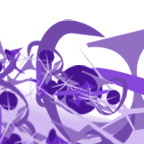
English 3906
Syllabus
| 28047-001 | |
| English 3906 | |
| Methods of Literary Study | John D. Schwetman |
| Fall 2011 | jschwetm@d.umn.edu / Tel. 726-8437 |
| Monday, Wednesday, Friday 9-9:50am in Chemistry 150 | Office: Kirby Plaza 328 |
| Tuesday 9-9:50am in Chemistry 251 | Office Hours: Tuesday 10-10:50am, |
| http://www.d.umn.edu/~jschwetm/fall2011/engl3906/ | Wednesday 10-10:50am |
| 4 credits | |
| This coure satisfies Category 9 of the Liberal Education Requirement. | |
Course Overview
This course will provide students with an introduction to the art of literary criticism with a focus on criticism's historical development and variations between contemporaneous approaches.
Objectives
During the semester, I expect students to achieve the following goals:
Understand the development of literature, literary criticism and critical theory.
Be able to identify various patterns in literary criticism ranging from the textual to the historicist.
Use the MLA citation format to provide the correct attribution for other people's ideas.
Discuss literary criticism in the context of a classroom discussion or smaller group discussions.
Write convincing arguments about literary criticism in examinations and the online discussion forum.
Recall key facts about the works in question.
Expectations
In order to accomplish these goals, students must
Read all of the required selections carefully.
Attend class—show up on time and prepared to discuss the readings assigned for that day. Students have a responsibility to plan their schedules to avoid excessive conflicts with course requirements. Excessive absences will have a negative impact on the grade that you receive in this course. Excusable absences include "subpoenas, jury duty, military duty, religious observances, illness, bereavement for immediate family and NCAA varsity college athletics." Please contact the instructor about anticipated absences in order to minimize their influence on your coursework. For more information on excused absences, see "http://www.d.umn.edu/vcaa/ExcusedAbsence.html"
Demonstrate a clear understanding of these works in exams and papers. For additional information about policies governing final exams, see "http://www.d.umn.edu/vcaa/FinalExams.html".
Respect fellow students and refrain from behavior that might impair their learning opportunities. Any behavior that substantially and repeatedly interrupts the instructor's ability to teach or the students' ability to learn will result in appropriate penalties. Disruptive behavior includes inappropriate use of communications technology in the classroom, such as ringing cell phones, text-messaging, watching videos, playing computer games, doing email, or surfing the Internet on one's computer instead of note-taking or other instructor-sanctioned activities. For further clarification of UMD policies in this regard, consult UMD's Student Conduct Code at "http://www.d.umn.edu/conduct/code/". UMD instructors and students have a responsibility to maintain a learning environment that is, as stated in the Teaching and Learning Policy, "respectful of the rights and freedoms of all members, and promotes a civil and open exchange of ideas." The full policy is available at "http://www.d.umn.edu/vcaa/TeachingLearning.html".
Grade Breakdown:
| Midterm Exam | 15% |
| Final Exam | 30% |
| Passage Analysis | 10% |
| Criticism Analysis | 35% |
| Participation | 10% |
| In-class/Online Assignments, including Peer Editing (4%) Presentation (4%) Attendance (2%) |
Your grade will depend primarily on your written work and the understanding of the material that you convey through that work. A command of standard written English and the ability to present an argument will also contribute to the determination of your grade.
Late assignments will receive a deduction of 1/3 of a letter grade for each business day that they are late. Students who miss exams may not make them up without a valid excuse for the absence. Valid excuses include health emergencies and family crises. If students anticipate missing an exam or a paper deadline for a valid reason and consult with me in advance, I can consider exceptions on a case-by-case basis.
Academic dishonesty tarnishes the reputation of the University of Minnesota Duluth and discredits the accomplishments of its students. Because the university is committed to providing students every possible opportunity to grow in mind and spirit, it must insist on an environment of trust, honesty, and fairness. Consequently, all members of the academic community must regard any act of academic dishonesty as a serious offense. In keeping with this ideal, this course will adhere to UMD's Student Academic Integrity Policy, which is available online at "http://www.d.umn.edu/conduct/integrity/". This policy sanctions students engaging in academic dishonesty with penalties up to and including expulsion from the university for repeat offenders.
Individuals who have any disability, either permanent or temporary, which might influence their capacity to perform in this class, should inform me at the start of the semester. I can make special adaptations of teaching methods, assignments, materials, or testing as required to provide for equitable participation in the course. The Office of Disability Resources is also available to assist students with disabilities. It is located in 258 Kirby Student Center and on the web at "http://www.d.umn.edu/access/".Required Texts
Eliot, T. S. The Waste Land. 1921. New York: Norton, 2001.
Hawthorne, Nathaniel. The Scarlet Letter. 1850. New York: Norton, 2005.
Lynn, Steven. Texts and Contexts: Writing about Literature and Critical Theory. Sixth Edition. New York: Longman, 2011.
Supplementary Texts
Bercovitch, Sacvan. The Rites of Assent: Transformations in the Symbolic Construction of America. New York: Routledge, 1993.
Chase, Richard. The American Novel and Its Tradition. Baltimore: Johns Hopkins U. P., 1957.
Kenner, Hugh. The Pound Era. 1971. Berkeley, CA: U. of California P., 1973.
Levenson, Michael H. A Genealogy of Modernism: A Study of English Literary Doctrine 1908-1922. New York: Cambridge U. P., 1984.
Schwartz, Sanford. The Matrix of Modernism: Pound, Eliot, and Early Twentieth-Century Thought. Princeton, NJ: Princeton U. P., 1985.
Weston, Richard. Modernism. New York: Phaidon, 1996.
16 September 2011